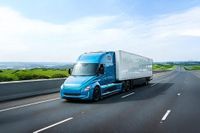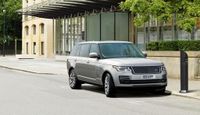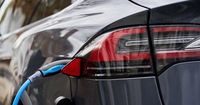A new study illustrates a significant price gap between the repair costs of electric vehicles (EVs) and those of traditional internal combustion engine (ICE) vehicles, revealing why many consumers remain hesitant to switch to electric models. The Warranty Solution Group's (WSG) latest Market View Report shows that the average cost of repairing a used EV is over 25% more than that for ICE vehicles, which may hamper the adoption rates of these environmentally friendly alternatives.
Between March 2024 and February 2025, the average warranty claims for EV repair reached £827.55, compared to just £623.10 for ICE cars—a striking difference of 26.78%. This analysis was based on 800 warranty claims from a range of electric and hybrid vehicles, including popular brands like Tesla, Polestar, and Audi.
Among the most pressing issues facing EVs are problems with 12v batteries, which cost approximately £192.03 to replace. Other notable issues include shock absorbers and charger ports, averaging £531.02 and £119.43, respectively. According to WSG experts, the prevalence of shock absorber not only troubles EV owners but also stems from unique characteristics of electric vehicles—specifically, they lack engine vibrations that help disperse forces throughout the chassis.
The financial strain extends even further with air conditioning compressors costing an average of £1,193.79 and suspension arms at £1,058.23. The report highlights that these costly repairs are a major contributor to the disparity in average claims between EVs and ICE vehicles.
In terms of reliability, Hyundai has emerged as the most dependable EV manufacturer, recording a claim rate of just 3.70% and an average claim cost of £309.46. Conversely, Land Rover was identified as the least reliable electrified brand, struggling with a staggering claim rate of 36.36%, attributed to a “mix of poor software execution and complex, failure-prone technology” affecting its hybrid variants.
John Colinswood, CEO of WSG, addressed the upper pricing for EV repairs, asserting, "EV warranty claims are significantly higher than ICE vehicles mainly due to costly EV-specific components that demand specialised tools and expertise." He emphasized that such financial burdens—and the need for robust warranties—are pivotal to fostering consumer confidence in switching to electric mobility, despite the environmental benefits of EVs.
The rising costs and complex technology associated with EVs mirror a broader trend reflected in consumer sentiment towards electric vehicles. A recent survey of 1,000 motorists conducted by online seller Carzone revealed that price and reliability are the primary barriers keeping prospective buyers from adopting EVs. Significantly, 40% of respondents cited expense as a concern, while 31% expressed worries about the reliability of electric models, and 28% pointed to rising electricity costs.
While there is emerging interest in adopting hybrid or full-electric vehicles—indicated by 32% of motorists planning to consider a hybrid or plug-in hybrid as their next acquisition—many remain skeptical due to pricing concerns that disproportionately affect rural drivers. The survey indicated that those living outside urban centers were more likely to cite initial purchase costs as prohibitive. Furthermore, over a third of respondents in these areas indicated that the lack of public charging infrastructure was a barrier to EV ownership.
Despite these hesitations, sales of EVs saw a minor resurgence in early 2025, following a drastic decline attributed to public charging difficulties and a general economic downturn. Climate experts, including Emer Barry of the Sustainable Energy Authority of Ireland, have urged the government to strengthen incentives for EV adoption as a critical component of Ireland's decarbonisation efforts. Barry noted, "As a wider offering becomes available, more households can consider an EV for their next car, whether it be a new or used EV," emphasizing the importance of making affordable options more accessible.
The report highlights that, while diesel vehicles remain the dominant fuel type in Ireland at 47%, followed closely by petrol at 42%, the acceptance of electric options needs to gain momentum. On average, consumers are shelling out €212 a month to maintain their vehicles, an expense that incites some to cut back on driving just to save costs.
Moreover, it is important to note that more than half of those surveyed (52%) reported a rise in their car insurance premiums last year, a situation that complicates consumer prospects further. Among demographics, those aged 65 and over tend to spend the most on car purchases, while younger drivers, particularly those aged 17 to 24, show the least interest in buying new vehicles.
As people continue to explore their vehicle-buying options, approximately a third of potential buyers (33%) prioritize price above all else, followed by reliability (18%) and running costs (12%). The most searched models in this market included popular options like the BMW 5-Series, Volkswagen Golf, and Hyundai Tucson, while noteworthy EVs comprised the Volkswagen ID.4, Nissan Leaf, and Tesla Model 3.
The findings from both WSG's Market View Report and Carzone's survey underscore a crucial juncture in the electric and hybrid vehicle markets. Without a targeted approach towards overcoming barriers related to pricing and reliability, the shift towards sustainable vehicle options may face formidable challenges as manufacturers develop solutions that not only meet but exceed consumer expectations.






